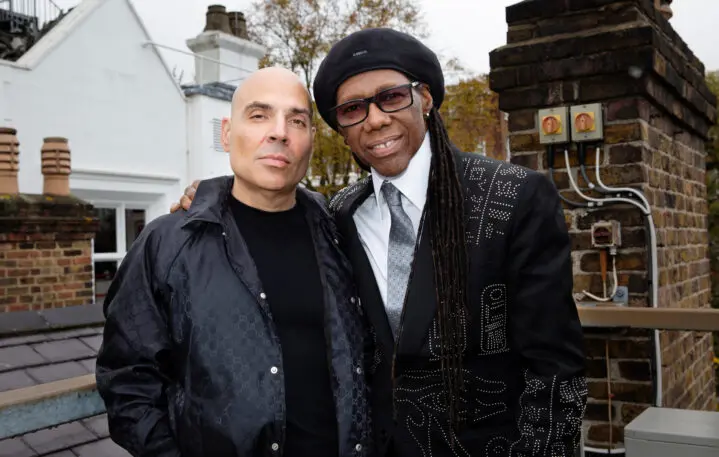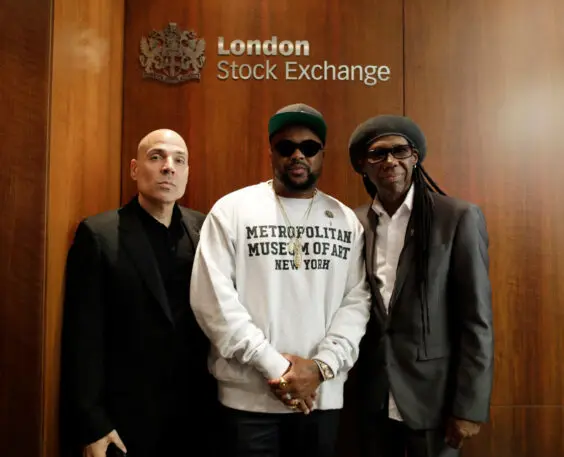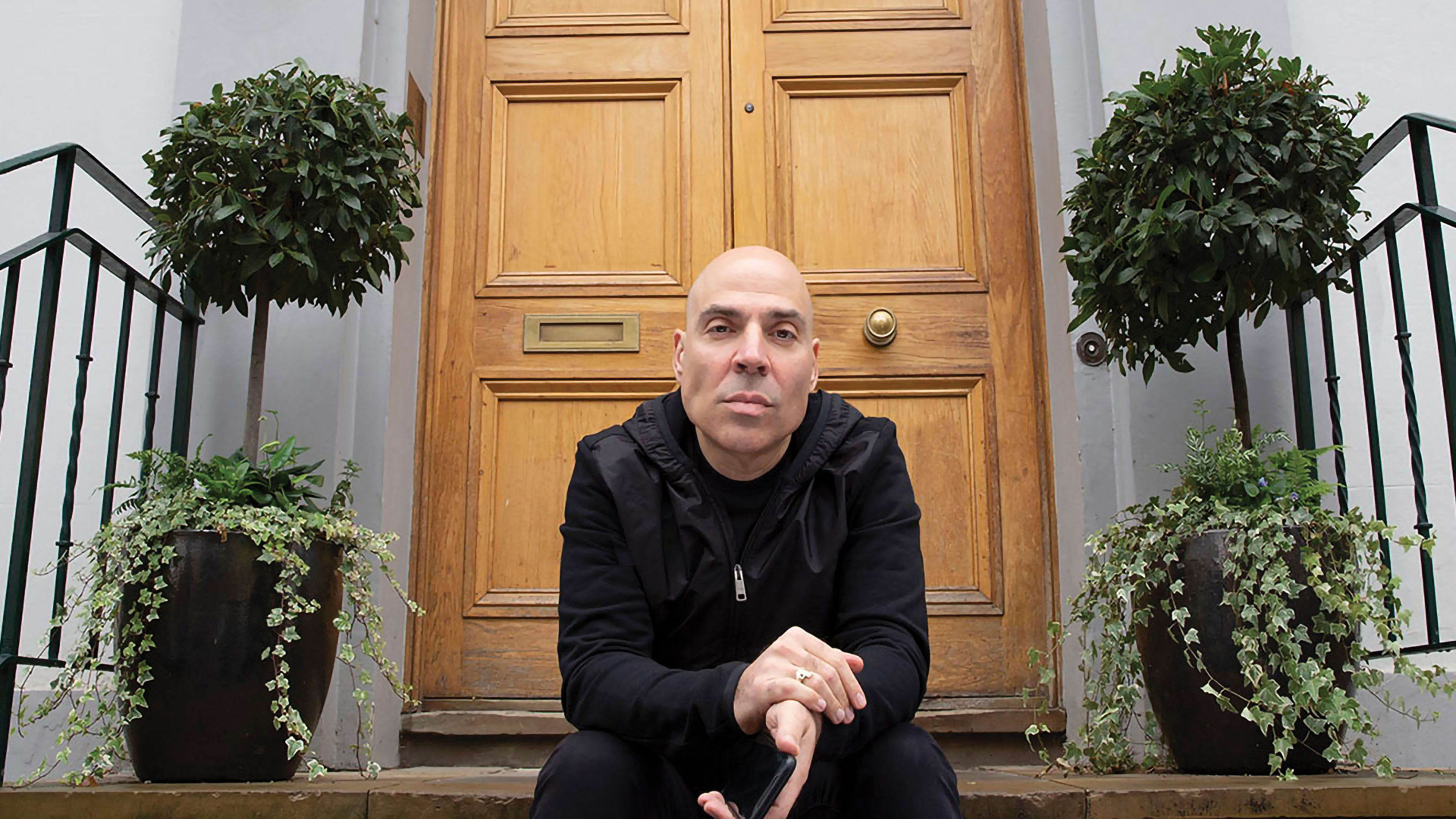Songwriter and lyricist Carole Bayer Sager was still in high school when she signed her first music publishing deal. Growing up, Sager—who would eventually pen hits including “A Groovy Kind of Love,” “Arthur’s Theme (Best That You Can Do),” “That’s What Friends Are For”—would write her own lyrics to popular songs on the radio. While attending New York City’s High School of Music and Art, she cut a demo that caught the attention of her neighbor who happened to be an entertainment lawyer.
To this day at 74, Sager recalls the sage advice he gave her when she was 15: “‘Whatever you do, don’t sell your publishing,'” she says. “That had been the golden rule for many, many years.”
Shortsighted deals such as Murray Wilson (father of the Beach Boys Brian, Dennis, and Carl Wilson) selling the band’s publishing company in 1969 for a mere $700,000 have lingered in the industry as a cautionary tale.
But lately, there’s been a wave of notable songwriters and artists, including Sager, selling their catalogs for dizzying sums. Within the past year alone, Bob Dylan sold his catalog to Universal Music Group for a reported sum between $300 million and $400 million; Stevie Nicks sold 80% of her rights to Primary Wave for a reported $100 million; Paul Simon sold to Sony and David Crosby to Iconic Artists Group, for undisclosed amounts.
There’s a gold rush for legacy catalogs, and many would agree Merck Mercuriadis, founder and CEO of Hipgnosis Song Fund, is at the heart of the frenzy.
Founded in 2018, Hipgnosis buys artists’s catalogs with the aim of licensing those songs for film, TV shows, video games, commercials, covers from other artists, and so forth. It’s what music publishing companies have always done, so by no means is Hipgnosis the only player in this space. But the speed of Hipgnosis’s growth and its flurry of dealmaking has been a catalyst in the industry overall.

Part of Mercuriadis’s strategy for Hipgnosis is not thinking of it as a publishing company.
“Publishing today is a broken model,” he says.”We’re replacing it with song management.”
To Mercuriadis, the major labels—Universal Music Group, Warner Music Group, and Sony Music Entertainment—that also own the major publishing companies, have treated their back catalogs as passive income with the primary focus on new recorded music that typically brings in higher revenue.
Mercuriadis argues that by working with a relatively smaller number of catalogs than the majors and making deals directly with the artist, Hipgnosis can give songs the kind of individualized attention that could yield high returns.
Investors would seem to agree.
Since debuting on the London Stock Exchange in 2018, Hipgnosis has skyrocketed to the FTSE 250—the UK equivalent of the S&P index detailing top-performing companies. Major artists, songwriters, and producers—including Shakira, Neil Young, Jack Antonoff, RZA, Timbaland, Rodney “Darkchild” Jerkins, and Jimmy Iovine—have sold part or all of their catalogs to Hipgnosis. The company also acquired publishing groups Kobalt Music Group and Big Deal Music, amassing more than 37,400 songs combined.
“I wasn’t even certain I wanted to sell my catalog, but I had been giving it some thought,” Sager says, who sold her entire catalog to Hipgnosis for an undisclosed sum. “As a songwriter, you really want to feel that your songs are in the right hands and that you’ve chosen a custodian who’s going to treat them well and care for them. And I have that feeling completely with Merck.”
Hipgnosis is repositioning certain songs as an uncorrelated asset class, meaning they can provide predictable and reliable income. To legacy artists, these deals can be like a pension plan to de-risk their future. But thinking more broadly, Hipgnosis has the potential to elevate where the songwriter sits in the economics of the music industry.
However, critics are skeptical if Hipgnosis can earn back as much as they’re spending. To date, Hipgnosis has pulled in around $90 million in revenue but has shelled out nearly $2 billion for catalogs. Also, because most of those deals are under non-disclosure agreements, there are concerns that Hipgnosis can’t be as transparent with its shareholders on where the company is spending its money.
“Hipgnosis came in late, they started throwing around a lot of money, and it has benefited me dramatically that they started stirring up the pot,” Larry Mestel, CEO of rival company company Primary Wave, told Billboard recently. “Artists who may not have thought about [selling their catalogs] are now thinking about it. That’s a positive thing, but time will tell whether their strategy is successful.”
“We acknowledge Larry has been buying and actively selling catalogues for many years,” Mercuriadis says. “My intention with Hipgnosis from day one was very different.”
Hipgnosis climbed the charts of song publishing in record time, but is its melody built to last?
Songs are the new artists
As a former manager to such artists as Beyoncé, Elton John, and Guns N’ Roses, Mercuriadis has spent years building relationships within the industry. And that rapport has become one of Hipgnosis’s biggest assets.
“I can’t play the guitar. I can’t sing a song. I can’t write a song. The only thing that gives me a seat at the table with these people is telling the truth,” Mercuriadis says.
“He can talk the language,” adds Alaister Moughan, a music publishing consultant. “An investment banker can’t just knock on the door of an artist and ask to buy the catalog. It’s a much more nuanced process than that. And I think Merck being a very high-profile artists manager not only has the relationships to access those catalogs, but also the ability to spin a story that these catalogs are going to be looked after and that he understands the cultural legacy.”
Rodney Jerkins, the songwriter and producer behind hits from Michael Jackson, Mary J. Blige, Beyoncé, Sam Smith, Brandy, and Toni Braxton, among others, says that he’s been approached by major publishing companies since the beginning of his career. But he was never interested in selling until fellow songwriter and producer The-Dream, who was the first artist Hipgnosis made a deal with, connected Jerkins with Mercuriadis.
“Merck is definitely very convincing, to say the least,” Jerkins says. “He told me that songs needed to be treated as the artists, that songs needed to be managed. I’ve never heard that my entire career.”
And it’s not just the big hits Mercuriadis is interested in reviving.
“A lot of times with catalogs, songs become dormant. There are other songs that are good, but no one’s really working them,” Jerkins says. “He expressed that he was going to pay attention to detail.”
Jerkins’s accolades are undeniable with hits such as “The Boy is Mine,” “Say My Name,” “Telephone,” and “If You Had My Love.” But for every chart-topping single, there’s a list of other songs that haven’t quite broken through.
“Merck made me realize out the gate that every song should have value,” Jerkins says. “What Merck has been trying to drill in myself and others is those songs hold value. It could be just a progression of a chord that sparks creativity for the next big hit from someone else. It may be a hook, maybe a verse within it. But don’t just leave your songs dormant sitting somewhere collecting dust. Really take a close look at everything that you have, and let’s try to find places for it to live.”
For example, Hipgnosis owns the catalog of drummer, songwriter, and producer Al Jackson, Jr. His songs were earning around $400,000 a year, with 82% coming from Al Green’s “Let’s Stay Together,” which Jackson co-wrote. A year later under Hipgnosis’s ward, the catalog started earning $600,000 per year with less than 50% coming from “Let’s Stay Together.”
“Call Me (Come Back Home)” by Al Green, co-written by Jackson, landed in a TV commercial. John Legend interpolated “I’m Still in Love with You” as the track “Remember Us” on his 2020 album Bigger Love.
“That’s not because we’re smarter or better than the people that were doing it before,” Mercuriadis says. “It’s simply that we’ve got the bandwidth to be able to do it.”
That bandwidth also allows Mercuriadis to be hands-on with the artists he’s working with.
“He constantly sends me songs that people want to use and one side of me is like, ‘Man, you own this now—what are you calling me for about it?'” Jerkins says. “But it just shows the respect that he has for my art.”
Adds Sager, “He had an incredible knowledge of so many of my songs—it’s like he could have written them,” she says. “He was so aware of each song and the potential of that song to resurface today with a different artist recording it. It was so invigorating talking to him on the phone and hearing his thoughts about my catalog going forward into the future.”
Elevating songwriters on the musical scale
Giving overlooked songs new life is only part of Hipgnosis’s mission. The deals that song funds and publishing companies are making lately have the potential to send a message to the music industry at large that songwriters in particular deserve a bigger slice of the pie.
Nile Rodgers, mega producer/songwriter and co-founder of the group Chic, came on board at Hipgnosis’s launch as an advisor. As chairman of the Songwriters’ Hall Of Fame, Rodgers is playing a key role in advocating for songwriters.

Songwriters, in fact, are currently locked in a legal battle over how much they’re compensated.
Last year, Spotify, Amazon, Google, and Pandora sought to overturn the Copyright Royalty Board’s 2018 decision to raise the royalties paid to songwriters by 44%. The move was met with immediate backlash, particularly targeted at Spotify. Many felt the company was hypocritical to fight against songwriters earning more while also having its Secret Genius Awards, an award show honoring the songwriters, producers, engineers, and other behind-the-scenes players, as well as launching the Songwriters Hub on the platform meant to spotlight songwriters and producers.
“There’s no ceremony that you could think of that’s not accompanied by music, be it sad or happy—they all have music,” Rodgers says. “So how could these people who love what they do not have had a raise in almost a century? It’s just not fair.”
Rodgers says the fight for equitable income for songwriters would be easier if major labels were on board, but they’re skittish to enter the fray in a meaningful way because the bulk of their revenue comes from recording artists.
“So there’s gotta be a way that we have enough leverage that we get into negotiations where we meet somewhere in the middle,” Rodgers says.
The attorney Alter sees a scenario where a song fund like Hipgnosis could garner the needed support to fight for songwriters from those investing in the company. “What would be very powerful is if some of these investor groups start putting some of their lobbying power and their money behind the legislative and regulatory efforts to protect and enhance the industry for songwriters,” she says. “It certainly behooves the business world to start shifting their influence behind the songwriters, as opposed to just the corporate entities that are seeking to profit from service providers.”
The future of Hipgnosis
In the short-term, Hipgnosis is offering artists an avenue to de-risk their futures and revive their catalogs, while also providing possible leverage for songwriters across the board.
But what does Hipgnosis’s success look like long-term?
Mercuriadis prides himself on running counter to major publishing companies, but Hipgnosis doesn’t have the deep pockets like the majors do to absorb any potential risk in betting on these catalogs.
Hipgnosis’s metric for figuring out which catalogs can have predictable and reliable income is based on historical data and cultural relevance. The reason there’s been such a heavy focus on older catalogs across the industry is that there’s more data to chart a song’s performance over time. But that pool of legacy artists and songwriters who actually own their catalogs to sell in the first place is only so big.

“We have to be very careful and deliberate,” he says.
It’s this dilemma that has observers skeptical of Hipgnosis being able to succeed at the level that some investors and fans hope. In an op-ed, Tim Worstall, journalist and senior fellow at UK think tank Adam Smith Institute, lays out his argument that while he appreciates the idea behind Hipgnosis, he can’t fully stand behind it.
“The reason being that I don’t see much, if any, capital appreciation over time in the values of those songbooks. Quite the opposite in fact, they’re a depreciating asset,” he states. “That’s fine, there’s still that margin to be made from the different time horizons of the parties involved. Songwriters in their 60s have a different time value of money from investors putting money in now to invest for the next 20 or 30 years. That’s what the economic—as opposed to business—play really is here.”
Analyzing along those long scales of time with a relatively new asset class such as songs is what’s so tricky in evaluating Hipgnosis. “Everyone always asks, Does Hipgnosis have this wrong? Are they overpaying, et cetera? And unfortunately the answer is, you have to wait and see,” says Moughan, the publishing consultant. “These assets have very long-term cash flows. So it’s hard to assess the performance of these catalogs, because you really need a good amount of time to prove or disprove if it was a good investment.”
In the meantime, Mercuriadis is staying the course with strategic acquisitions while also figuring out a way to be more transparent with investors. “We’re almost always under non-disclosure agreements where we can’t disclose the price [of a catalog],” he says. “So we’re working out ways of being able to disclose more information to the market.”
While Hipgnosis’s long-term viability may not be as clear as it could be for some, for songwriters like Sager, having Mercuriadis reframe publishing as bespoke song management should count as a win for the music industry in and of itself.
“It’s really about who are these songs going to live with and how does that person relate to them?'” Sager says. “Merck has such an appreciation of music and songwriting, and it’s very authentic. You can’t fake that. He is a real songwriter’s publisher.”
Recognize your brand’s excellence by applying to this year’s Brands That Matter Awards before the early-rate deadline, May 3.
